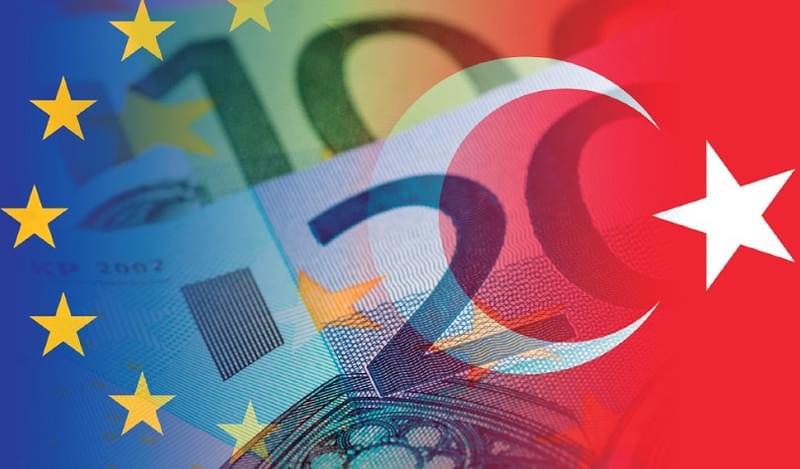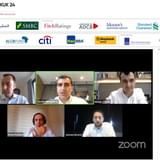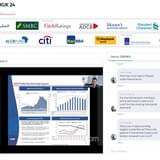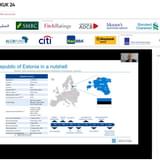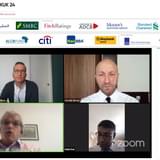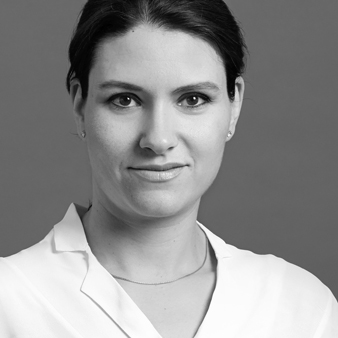
I am relatively more comfortable on the monetary policy front. I think we are moving towards orthodoxy in that area, and I believe it is unlikely Turkey would engage in premature easing anytime soon, particularly given the current inflation outlook and relative weakness of emerging market currencies. That said, the appointment of Erdogan’s son-in-law Berat Albayrak as the new finance minister will pose downside risks to monetary orthodoxy.
Fiscal policy could emerge as an area of bigger concern. I don’t think either President Erdogan or AKP have emerged from the most recent election feeling overwhelmingly pleased with the results. With that kind of vulnerability, they would be unlikely to adopt any serious fiscal tightening or any significant structural reform, especially labour market or tax reform, despite this being what Turkey needs at the moment. The concern on the fiscal side isn’t just around headline numbers – like debt to GDP or the budget deficit to GDP– but centred on whether fiscal policy can lend support to monetary policy, which is where there needs to be more focus. There’s a real constraint there, and it’s unlikely they will have the capacity to do enough ahead of the local elections in March 2019. What the government is likely to do is give out handouts through municipalities in advance of local elections next year, particularly in large centres like Ankara and Istanbul.
Is the result of the recent election in Turkey likely to make a material difference to the likelihood of the pursuit of those policies?
It’s hard to say. MHP may hold the government hostage on a number of policies – they are effectively the kingmaker in the parliament – but I don’t think the economy is an area of core concern for the party; they haven’t made it a central part of their platform, nor have they articulated a clear stance on what kinds of policies they would want to see. They would rather focus on the security portfolio and foreign policy, at least for the time being.
On the economic policy front, Erdogan and AKP will have significant autonomy if they decided to move forward with reforms. The key difference is that compared to five or six years ago, the skillset of the economic leadership, including advisors, is perceived to be a bit weaker. That’s important, especially for the prospect of developing a feasible and effective reform plan. We haven’t seen a coherent economic reform plan in years, and even if one were to take shape, it seems unclear whether the current leadership will be capable of implementation.
One of the things I am optimistic about is that, I believe, markets will put some pressure on the government to move towards orthodoxy both on the fiscal side as well as on monetary policy. The promise to remove emergency rule is also a sign of that market pressure, and we may see some other business friendly measures to begin with – but I’m not necessarily optimistic that this will lead to more structural changes, which would improve the sustainability of the long-term growth outlook for the Turkish economy. this is particularly the case in light of the newly appointed cabinet, with Albayrak leading the economy portfolio.
Central Bank independence is often cited as a concern among those investing into Turkey from abroad. Should the most recent 500bps in hikes – which came in spite of executive pressure to keep rates low – be interpreted as a robust signal that the institution is functioning as it should?
If and when the Turkish lira comes under pressure, the Central Bank is going to tighten – and I think Erdogan is okay with that. There are a number of examples where the adjustment has come a bit too late, however, and that’s why it can seem as though the response from the Central Bank is not credible. But one of the positive things to note is that alternative policies – like capital controls – are not being considered. Short of that, the only other real response is interest rate moves, and despite Erdogan’s stated ambitions to see lower or negligible interest rates, he knows he needs to let monetary policymakers tighten. The Central Bank will continue to come under political pressure at times, and it will likely continue to be a more dovish bank among other EM central banks; when the time is right, for instance, I wouldn’t be surprised to see the Turkish Central Bank being the first to cut rates. But that doesn’t mean we will start seeing the bank easing right away.
Are there bright spots in the economy – or certain sectors that manage to cut through the noise / disruption being caused by politics or erosion in the exchange rate?
Tourism is performing fairly well this year, and I don’t see much risk to that – particularly if you look at the improving security situation and forward bookings. I don’t expect that to change over the summer season. Exporters are also benefitting from the pickup in European markets, in addition to a weaker lira; we see that as a good story and not one likely to evaporate anytime soon.
Clearly, the country is going through a slowdown, so I wouldn’t say the same thing about consumption-driven sectors or construction.
Do you see any discrepancies between how the country’s economic performance and prospects for improvement is being perceived on the ground in Turkey and how this is perceived abroad?
Priorities are very different. Given global liquidity conditions for the past couple of years, portfolio investors have been too complacent on Turkey and were prepared to ignore some of the weaknesses and vulnerabilities inherent to the Turkish economy. Erdogan’s recent TV interview in London was a turning point in the sense that it was a key inflection point for foreign portfolio investor sentiment souring. The pendulum has swung back very quickly from overly optimistic to overly pessimistic, and part of that is due to changes in the global liquidity environment; interest rates and benchmark yields are rising, and liquidity is becoming more constrained – especially in emerging markets.
For domestic investors, the progression has moved in the same direction but in a more measured way. Their concern about FX is important as a lot of corporates have significant foreign currency debt. But they also recognise the resilience found in a number of corporate sectors in Turkey; many of these credits are good at risk management and have their balance sheets hedged.
